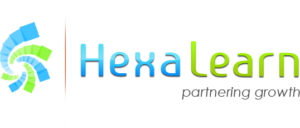Exploring eLearning Models 2.0
Traditional learning approaches are being challenged by innovative eLearning models based on current trends that enable learner experiences worldwide. As we enter the next digital education age, knowledge dissemination, evaluation, and retention are all being redefined through eLearning models 2.0. The article further discusses critical trends shaping eLearning model development and how such trends are indeed changing the nature of digital education.
A New Era For eLearning Models
1. Personalized Learning Through AI And Data Analytics
One of the most revolutionary trends in eLearning models 2.0 is personalization, powered by AI and data analytics. AI-driven systems analyze learner data to personalize content delivery so that individuals receive tailored resources based on learning pace, preferences, and knowledge gaps.
For example, some learning platforms utilize an algorithm that adjusts the course content interactively to promote engagement and increase effectiveness. These systems are able to support a variety of learner profiles, hence making education more inclusive and result-oriented.
2. Immersive Learning Through AR And VR
AR and VR technologies will make eLearning even more immersive and hands-on. These areas exist within the interface of theory and practice, at least in areas such as healthcare, engineering, and aviation.
For instance, training simulations based on VR enable doctors to practice surgeries with zero risk. Analogously, AR-enabled training tools assist technical training through the use of interactive overlays, leading to more effective skill building and retention. As costs for hardware continue to plummet, AR and VR are poised to soon be integrated into newer models of eLearning.
3. Microlearning For Bite-Sized Education
Learners in today’s fast-paced world prefer short, focused lessons that fit seamlessly into their schedules. In response, the new model of microlearning has been latched upon by many, breaking complex topics into easily digestible modules.
Such tendencies are aligned with the shortened attention spans of modern learners and the need for on-the-go education. Microlearning modules commonly involve videos, infographics, and quizzes, which can really be engaging and effective. Successful examples of microlearning have been observed within popular platforms where users can develop new skills in a matter of minutes per day.
4. Gamification To Engage
Gamification is one of the most crucial elements in eLearning models 2.0: leaderboards, badges, and rewards stimulate motivation and competition among learners, thus improving engagement and retention results.
This happens mainly in corporate training, in which gamified courses make learning fun and engaging. For example, firms that have actually gamified their onboarding programs have led to more completed and retained knowledge.
5. Social And Collaborative Learning
Learning is a social process, and eLearning models 2.0 have attempted to capitalize on this by integrating collaborative tools within online delivery structures. Virtual classrooms, discussion forums, and the peer review system provide avenues for learner interaction, sharing insights, and preparing group projects.
They model real-world scenarios that enhance teamwork and critical thinking. Such collaboration tools have complimented LMSs by making collaboration easier in both academic and corporate settings.
6. Mobile Learning For Anytime, Anywhere Access
With the extensive diffusion of smartphones, mLearning has become a significant eLearning trend wherein learners can access courses, do assignments, and monitor their progress at all times, everywhere.
With responsive design and mobile-first strategies becoming more popular among eLearning providers, it is now possible to reach more devices through screens than a single desktop or laptop computer screen. The same principle is even more critical for developing regions, where mobile phones are more common than other devices.
7. Blockchain For Secure Credentialing
Blockchain technology has begun to change the means by which academic credentials are issued and verified. The certificates, transcripts, and digital badges under eLearning models 2.0 are tamper-proof and safely stored through the blockchain.
For example, MIT issues blockchain-issued digital diplomas that can be verified in real time by employers. This technology gives rise to trusted and transparent transactions, with no potential credentials fraud cases that would otherwise make eLearning less credible.
8. AI-Driven Content Creation
Besides personalizing learning, AI also makes content creation streamlined. AI tools can actually design quizzes, summaries, and even full courses according to pre-defined parameters, cutting time and cost for course development by a huge margin. These tools support the educator in creating interactive content, videos, and assessments. They thus enable quick scaling of eLearning programs.
9. Sustainability In eLearning
eLearning models are now requiring a critical focus on sustainability. By saving time, materials, and travel, eLearning has a lower carbon footprint. Organizations are also establishing green platforms not only powered by renewable energy but also aimed at achieving global sustainability goals. In fact, learners and institutions alike are embracing eLearning as convenient and good for the environment.
Conclusion
eLearning models 2.0 are a testament to how technology and pedagogy can intersect to create transformative educational experiences. These future models of learning are being established through personalized learning driven by AI, and immersive training with AR and VR, which are some of the new benchmarks in digital education.
As these models are getting noticed and followed by institutions and organizations, a promising future for eLearning is in store where learning becomes more accessible, engaging, and impactful for everyone. By keeping abreast of these trends, educators and eLearning providers can ensure that they deliver experiences consistent with the demands of a dynamic, tech-savvy world.

HEXALEARN SOLUTIONS PRIVATE LIMITED
ISO certified learning & software solutions company.

